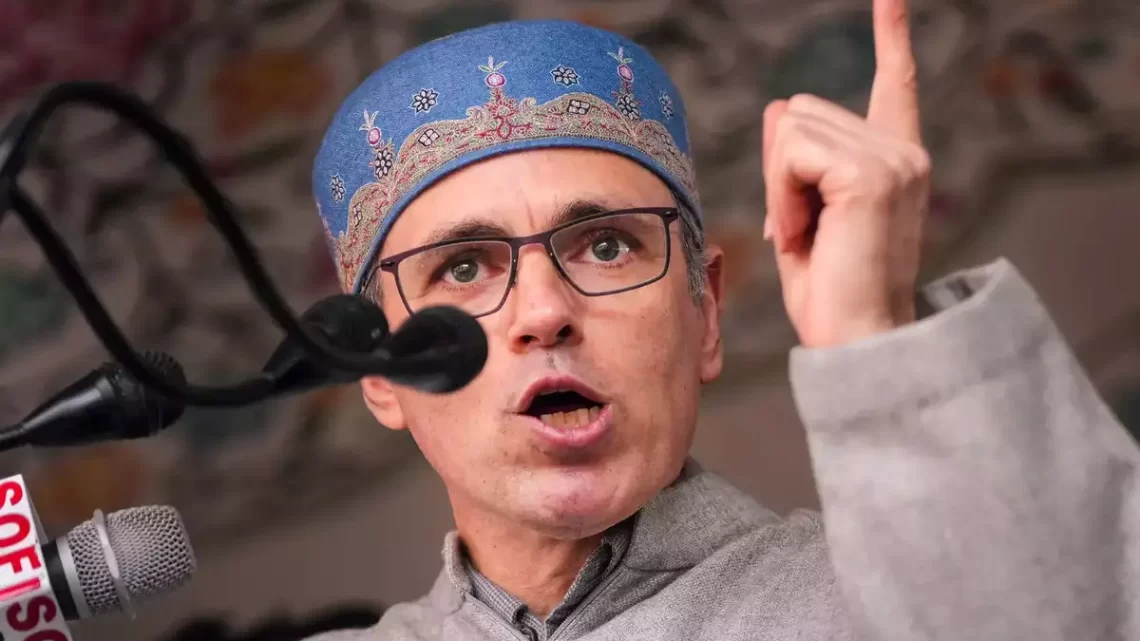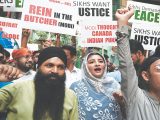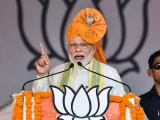
No Peace, Only Devastation in IIOJK: Omar Abdullah
May 9, 2024National Conference Vice President Omar Abdullah has cast doubt on the Indian government’s assertions of normalcy in occupied Jammu and Kashmir, asserting that the reality on the ground paints a starkly different picture. Since August 2019, instead of progress, the region has witnessed a surge in devastation, according to Abdullah.
Addressing a gathering in Hyhama, Kupwara, Abdullah highlighted recent attacks and killings in Rajouri, Poonch, Srinagar, and other areas, emphasizing the absence of stability throughout the region. He lamented the severe circumstances that have ensnared the populace, contradicting the narrative of peace and development propagated by Indian authorities.
Abdullah disputed claims of significant development following the abrogation of Article 370, citing the glaring disparity between official assertions and the lived reality of Kashmiri residents. He pointed to the dismal state of infrastructure, particularly the deplorable road conditions, and the persistent issue of prolonged electricity cuts coupled with soaring electricity tariffs, which have exacerbated the plight of ordinary citizens.
In Abdullah’s assessment, the parliamentary elections held amidst these challenging conditions hold immense significance for the Kashmiri people. Through their votes, they have an opportunity to convey a resounding message to New Delhi and the international community, asserting their aspirations and grievances in the face of ongoing adversity.
The assertions made by Omar Abdullah resonate with the sentiments of many Kashmiris who have endured the tumultuous aftermath of political decisions made without their consent. Despite assurances of progress and stability, the ground reality paints a different picture—one marred by continued hardship and uncertainty.
The situation in occupied Jammu and Kashmir underscores the importance of listening to the voices of those directly impacted by governmental policies and decisions. The discrepancy between official narratives and the lived experiences of Kashmiri residents highlights the need for a more nuanced understanding of the complexities surrounding the region’s socio-political landscape.
Abdullah’s remarks serve as a reminder that true progress and stability cannot be measured solely by political declarations or statistical figures but must be assessed through the lens of tangible improvements in the lives of ordinary citizens. As Kashmir grapples with ongoing challenges, it is imperative to heed the calls for justice, equality, and self-determination voiced by its inhabitants.
In the midst of geopolitical tensions and competing narratives, it is essential to prioritize the well-being and rights of Kashmiri civilians. Only through genuine dialogue, empathy, and a commitment to addressing underlying grievances can lasting peace and prosperity be achieved in the region.
As Kashmir continues to navigate the complexities of its socio-political landscape, the voices of its people must remain at the forefront of any discussions or decisions concerning its future. Only by acknowledging and addressing the realities faced by Kashmiris can meaningful progress and reconciliation be achieved in the region.

